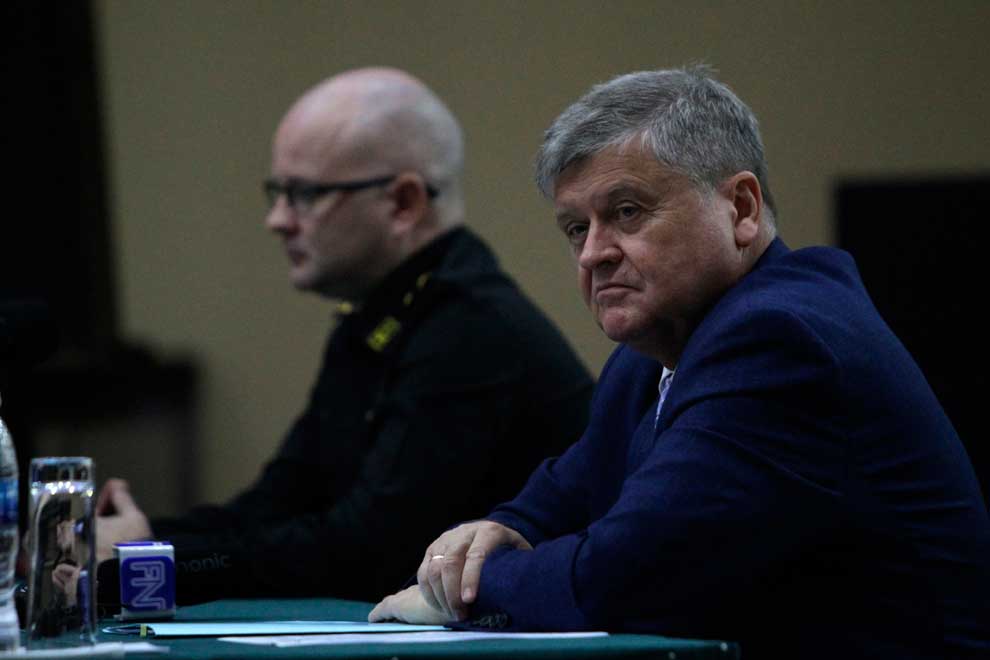
Josep Borrell Fontelles in his recent photo posted on his X, formerly Twitter.
At the start of 2024, Europeans are of course deeply concerned by the ongoing Russian war of aggression against Ukraine and by the conflict that has broken out again in the Middle East.
However, we are not forgetting the broader picture: the centre of gravity of the world’s economy has shifted to the Indo-Pacific region, with close to 50% of the world’s GDP and 60% of the world’s population. Peace and stability in this region are crucial for Europe and the world.
In recent years, the EU has worked steadily to improve its cooperation with the region, in particular by becoming in 2020 a strategic partner of ASEAN, launching its Indo-Pacific strategy in 2021, holding a successful EU-ASEAN Summit in 2022 and adopting the Samoa Agreement with Pacific countries in 2023. We will accelerate the path in 2024.
The economic links between the EU and the Indo-Pacific region have reached an impressive level, unimaginable 40 years ago. Maritime routes in the region have become the arteries of the world: every day 2,000 ships transport goods across the Indian Ocean and the South China Sea to Europe and back. However, the security environment is deteriorating.
Major tensions are rising, from the South China Sea to the Taiwan Strait, the Korean peninsula and the Red Sea. There is less trust among the main global and regional players; less respect for international law and multilateral agreements; force and coercion are on the rise. We are at risk of going back to a world where “might makes right”.
The EU intends to counter this trend. Multilateral solutions and regional approaches are in our DNA and we will always defend international law, including the UN Convention on the Law of the Sea (UNCLOS) and the non-proliferation regime. To defend the rules-based world order, we want to cooperate more closely with our partners committed to multilateralism in the Indo-Pacific region.
The EU maintains regular security and defence dialogues with China, Japan, India, Australia, South Korea and other nations. However, our cooperation increasingly extends beyond dialogue to concrete and operational activities.
Under our Strategic Partnership with ASEAN, security cooperation is also becoming more and more a major component. We are participating with members of ASEAN in regional navy exercises, and the navies of our Asian partners are cooperating with us in Operation Atalanta, near the Horn of Africa. These are good examples of what we can do together.
To go further, we propose to use our member states’ advanced capabilities to become a “smart security enabler”, helping to build the capacities of our partners in the region on maritime security, cybersecurity, counter-terrorism and foreign information manipulation and interference.
We need each other to help stabilise this world. The challenges we are facing do not allow us any other way than to cooperate closely to help avoid conflicts and ensure respect for international law. To protect freedom of navigation, EU member states are already increasing their deployments between the EU and the Indo-Pacific. The region can count on us as a reliable partner.
On the economic side, Russia’s aggression against Ukraine has shown us the high cost of the EU’s excessive dependency on Russian gas. We are therefore focusing on improving the EU’s economic security by reducing this type of excessive dependency.
However, this does not mean closing our borders. On the contrary, it should lead to developing our economic ties with many countries in the Indo-Pacific region, in order to de-risk our economy and diversify our supply chains.
In this context, the EU has recently signed a free trade agreement (FTA) with New Zealand, and negotiations are ongoing with India, Indonesia and Thailand. We are also engaging with Japan, South Korea, Singapore and India to ensure stable and diversified supply chains in the field of digital technologies, and have proposed to our Indo-Pacific partners to work together on the sustainable extraction and processing of critical raw materials, necessary for the green and digital transitions.
The EU also wants to cooperate more actively with Indo-Pacific countries towards a green and sustainable future. The Green-Blue Alliance with the Pacific islands is helping to strengthen their climate resilience.
Together with our Group of Seven (G7) partners, we have also agreed on Just Energy Transition Partnerships with South Africa, Indonesia and Vietnam, and the European Investment Bank is already investing €500 million (over $541 million) to accelerate Vietnam’s green transition in a way that benefits both people and the planet.
In short, we are well aware of the crucial importance of the EU’s engagement with the Indo-Pacific region. We are demonstrating it with a Pacific Day in the European Parliament on February 1, highlighting our burgeoning cooperation with our Pacific island partners. The next day, our third Indo-Pacific Ministerial Forum will bring together Foreign Ministers from the region and the EU. We will then hold our biennial EU-ASEAN ministerial meeting.
In a world of geopolitical turbulence and great power rivalry, these three high-level meetings illustrate the strong and shared interest that the EU and the Indo-Pacific countries have to cooperate more closely in order to enhance their security, prosperity and resilience.
Josep Borrell Fontelles is High Representative of the EU for Foreign Affairs and Security Policy and Vice-President of the European Commission.
The views expressed in this article are those of the author.






















